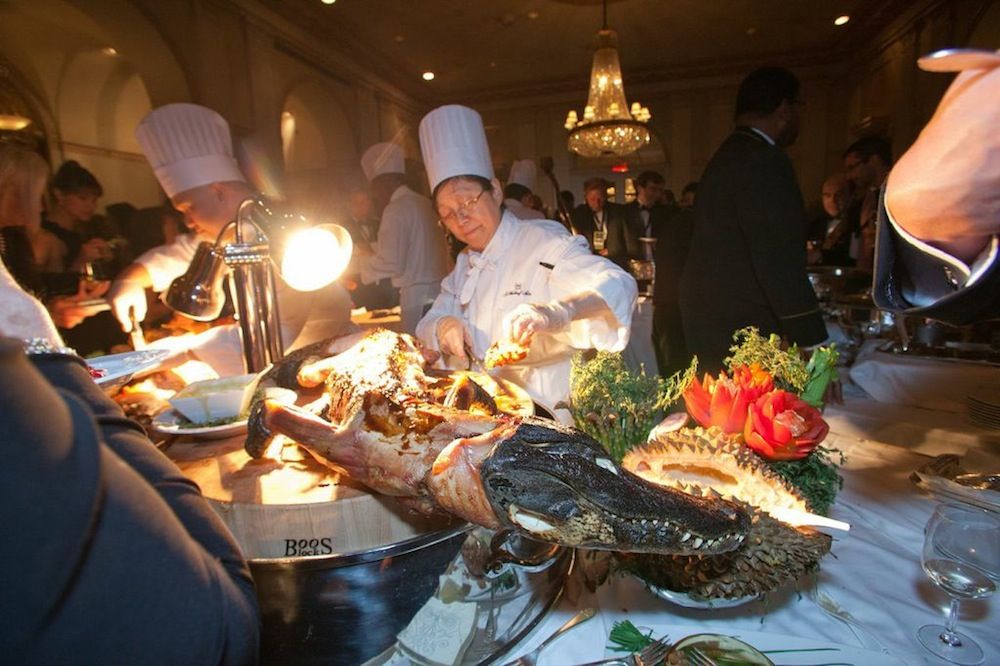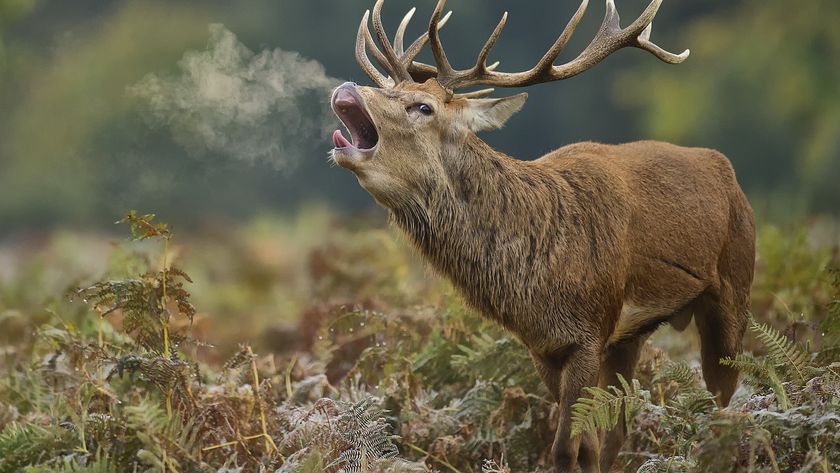Stephen Hawking to Headline Star-Studded Explorers Club Gala

The Explorers Club — an exclusive society made up of intrepid individuals who have traveled to some of the most remote corners of the planet — is hosting a glitzy, black-tie event this weekend in New York City to salute the power of exploration and technology.
The 110th Explorers Club Annual Dinner will be held Saturday (March 15) at the Waldorf Astoria hotel. Legendary physicist Stephen Hawking will deliver the gala's keynote address, according to the event's organizers.
Other notable attendees include Felix Baumgartner, who became the first human to break the speed of sound in freefall, after he skydived from 23 miles (37 kilometers) in the air; Joe Kittinger, who holds the record for the highest and fastest human fall, after he fell freely for 84,700 feet (25,817 m), reaching a speed of 614 mph (988 km/h); and Michael Lopez-Alegria, a former space shuttle astronaut and the current president of the Commercial Spaceflight Federation. [Photos: Inside the Exclusive Explorers Club]
This year, the Explorers Club will honor individuals whose technological contributions have advanced the fields of science and exploration.
The evening's honorees include Walter Munk, the so-called father of modern oceanography; Franklin Chang Diaz, a former astronaut whose work is now focused on future methods of space exploration; Maria Zuber, a planetary researcher credited with discovering the inner core of the moon; Pat and Rosemarie Keough, a pair of internationally acclaimed photographers; the Apollo F-1 Search and Recovery Team, which located and retrieved an iconic piece of history from the Apollo moon program; and Tesla Motors, Inc., a company working to manufacture innovative electric vehicles under the helm of entrepreneur Elon Musk.
The black-tie event has also come to be known for its unique cocktail hour, which includes innovative hors d'oeuvres made with interesting and somewhat strange ingredients. On the menu? Appetizers that feature mealworms, alligator, jellyfish, earthworms, ants, lionfish, exotic fruits, orchid flowers, and at least 10 different types of fungus.
These one-of-a-kind hors d'oeuvres are inspired by the unique and sometimes exotic expeditions undertaken by members of the Explorers Club, but they are also designed to emphasize the importance of sustainability in food production, said Gene Rurka, who expertly curates the gala's so-called alternative menu.
Sign up for the Live Science daily newsletter now
Get the world’s most fascinating discoveries delivered straight to your inbox.
"The message I'm trying to bring across to people is that we're basically out of food," Rurka told Live Science. "In a few more years, we could have 9.5 billion people on Earth, and we've got to feed all of these people. We have to look at alternative methods of agriculture — not just your beef, your pork, your chicken."
In addition to promoting sustainability, the cocktail hour's alternative menu is also designed to fit with the spirit of the Explorers Club, according to Rurka.
"The broader goals of the Explorers Club is to promote exploration and scientific research," he said. "I'm hoping that the Explorers Club Annual Dinner will open up people's eyes and minds, and also their palettes. I think every dinner we do is just another step toward expanding our horizons."
The annual event also serves as a fundraiser for the Explorers Club, which supports scientific exploration and research in the physical, natural and biological sciences. Proceeds from the gala's ticket sales and silent auctions will help fund expeditions across land, sea, air and space, according to club officials.
The Explorers Club Annual Dinner is open to club members and the public. Tickets to the event can be purchased via email at Reservations@explorers.org or by calling (212) 628-8383. The starting price per ticket is $375, according to the event's organizers.
Follow Denise Chow on Twitter @denisechow. Follow Live Science @livescience, Facebook & Google+. Original article on Live Science.

Denise Chow was the assistant managing editor at Live Science before moving to NBC News as a science reporter, where she focuses on general science and climate change. Before joining the Live Science team in 2013, she spent two years as a staff writer for Space.com, writing about rocket launches and covering NASA's final three space shuttle missions. A Canadian transplant, Denise has a bachelor's degree from the University of Toronto, and a master's degree in journalism from New York University.












